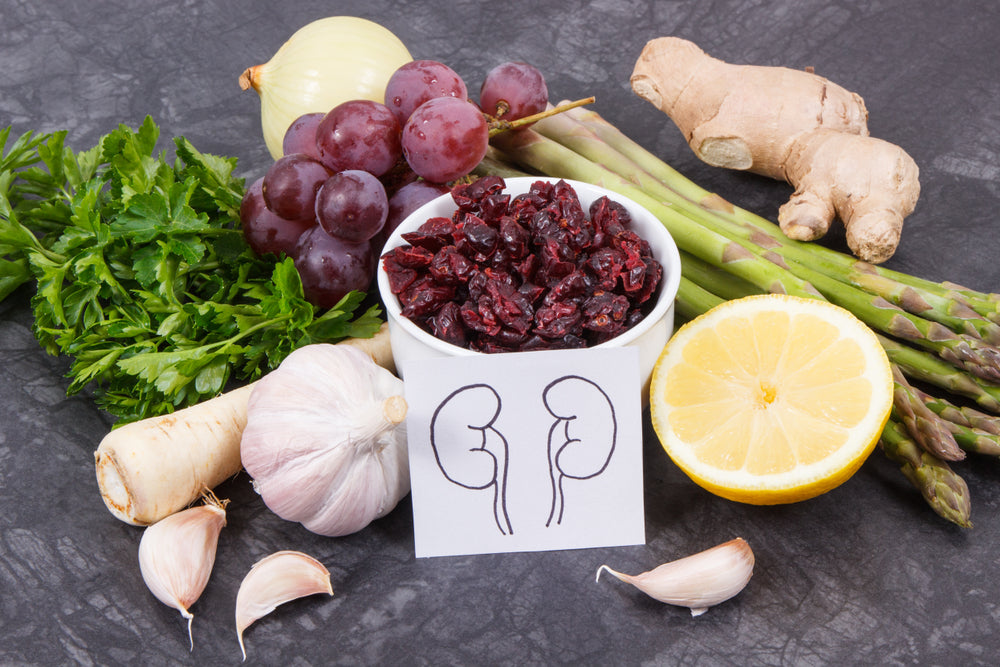
If you’re female, chances are that you have experienced the annoying discomfort of a urinary tract infection (UTI) at some point in your life.
A UTI is caused by bacteria in the urine traveling up to the bladder.1 It is the most common bacterial infection in women, who are thought to contract UTIs more often because they have a shorter urethra than men.2,3 About 60% of women and 12% of men will have at least one UTI during their lifetime.1 And about 30% of women who suffer from a UTI experience frequent recurrences.4
The most common symptoms of a UTI are the sensations of pain and burning during urination, lower abdominal pain, and cloudy, bad-smelling urine. Often you’ll have a strong and frequent urge to urinate even when you can only produce a few drops.1
An estimated 86% of uncomplicated UTIs are caused by Escherichia coli bacteria.3 Antibiotics are the standard therapy used to prevent and treat UTIs, and the threat of UTI-causing pathogens developing antibiotic resistance is of growing concern. Also, taking antibiotics orally can disrupt the normal intestinal microflora, resulting in diarrhea and opportunistic infections.5
These problems have led many of those who suffer from recurring UTIs to seek out ways to control UTIs naturally. One of the easiest ways is to drink plenty of fluids and urinate regularly to flush out any bacteria that might be present in the urinary tract.1
In addition, all of the following supplements can help control UTIs naturally.
The cranberry belongs to a group of fruit-producing evergreen dwarf shrubs or trailing vines found in acidic bogs throughout the cooler parts of the Northern Hemisphere including northern Europe, northern Asia, and North America. The berry produced by the plant is small and pink and has a bracingly sharp, acidic taste.6
The effects of cranberry on controlling UTIs have been widely studied in laboratory and clinical studies, as well as in vitro.2 While cranberry has not been proven to be a replacement for antibiotics, it has shown effectiveness in treating UTI symptoms and potential in preventing the development and recurrence of UTIs.2,7
Studies have found that the proanthocyanidins contained in cranberry may prevent bacteria from adhering to the cells lining the urinary tract, which can reduce the chances of developing a UTI.8 Cranberry could also decrease symptoms of UTIs by suppressing the inflammatory response to bacteria invasion.2
A study specifically tested cranberry fruit powder made from peel, seeds, and pulp instead of cranberry juice to see if there was a difference. The study found a reduced number of symptomatic UTIs in women with a history of recurrent UTIs who took the cranberry powder.9
One downside to dried cranberry extract is that it can be broken down by exposure to light, heat, or cold. The addition of vitamin C can stabilize the cranberry.10
D-mannose is a natural monosaccharide widely found in plants and microorganisms and is an essential glyconutrient for human health.9
D-mannose is one of the most effective sugars at blocking colonization and treating or preventing a UTI.9 It does this by binding to molecules of E. coli that are discharged with the urine, thus preventing their adhesion to the cells lining the walls of the urethra and bladder.11
In a study comparing D-mannose with the antibiotic nitrofurantoin for prevention of recurrent UTI, the group receiving D-mannose experienced fewer recurrent UTIs than those in the nitrofurantoin group.12
Another study involving a mixture of dry cranberry extract, D-mannose, probiotics, and tara gum showed the mixture significantly improved the uncomfortable symptoms reported by women with acute uncomplicated UTIs.3
The herb garlic has exhibited antimicrobial and anti-inflammatory properties. A study testing the antibacterial effect of garlic extract showed it was effective against Escherichia coli, the most common cause of UTIs.13
Probiotics have long been used to maintain the health of the gastrointestinal microbiota. But evidence shows there are similar microbiota inhabiting many sites of the body, and that some of them could have a role in maintaining urinary health.14
Studies of the urinary microbiota (UM) have pinpointed depletion of these organisms in women susceptible to UTIs. This raises the question of whether supplementing the UM through probiotics could lower infection rates.
In some studies, intervention with probiotics was shown to have some effectiveness in the treatment and prevention of urogenital infections. From these results, it’s possible that probiotics can be used as a first step in regulating the UM to reduce the risk of – or as a treatment for – certain urinary diseases.14
In a small study of women treated for UTIs with antibiotics, intravaginal administration of the probiotic Lactobacillus crispatus after treatment was associated with a reduction in recurrent UTIs.4
Also known as ascorbic acid, vitamin C is a water-soluble vitamin essential for human health.15 Since humans cannot synthesize vitamin C internally, they must obtain it from food and dietary supplements.16
A potent antioxidant, vitamin C is often taken to strengthen the immune system, which helps fight off bacterial infections. It also plays a role in detoxifying reactions and in the formation of collagen in fibrous tissue, teeth, bones, connective tissue, skin, and capillaries.15
Ascorbic acid is thought to prevent UTIs by acidification of the urine. But some in vitro data suggest vitamin C inhibits the growth of bacteria in the urine without destroying it.17
References